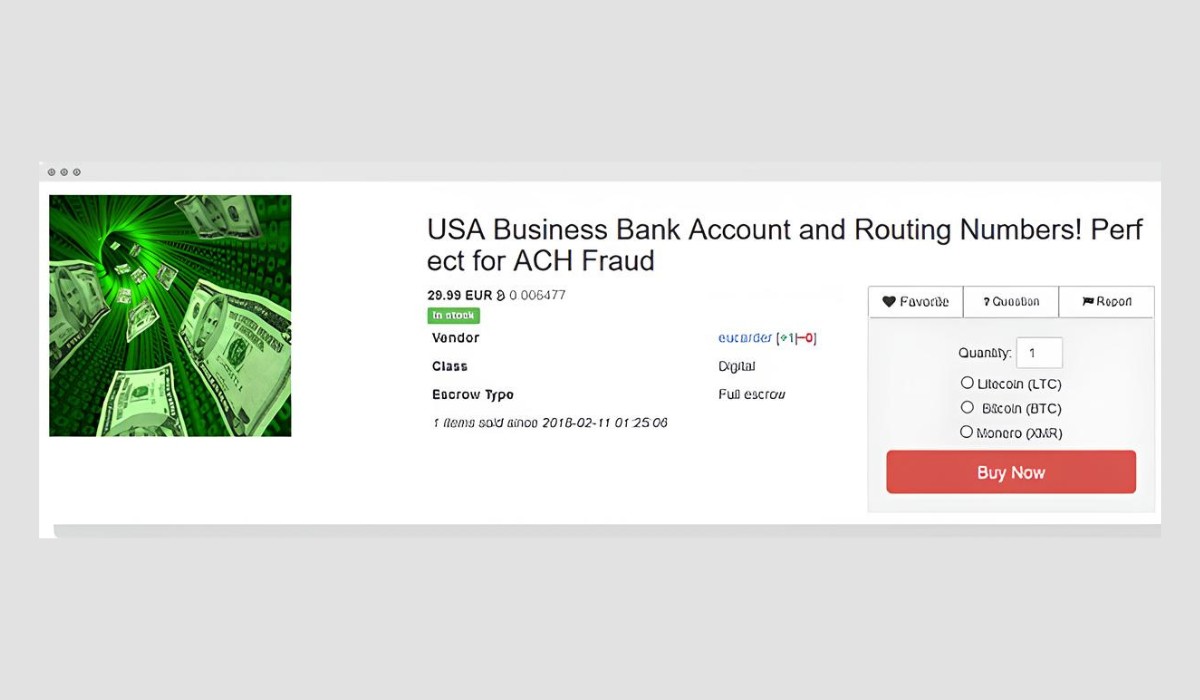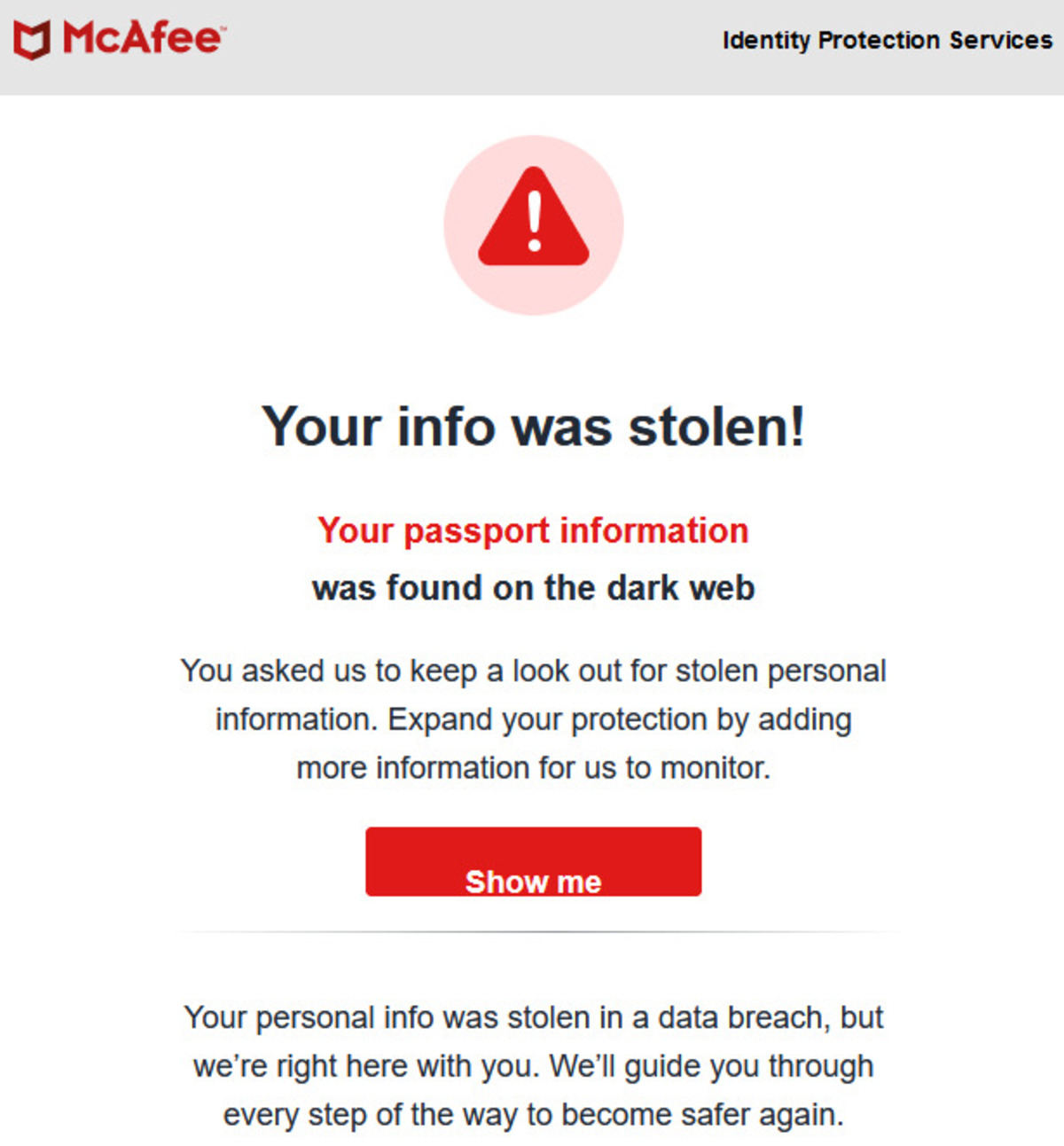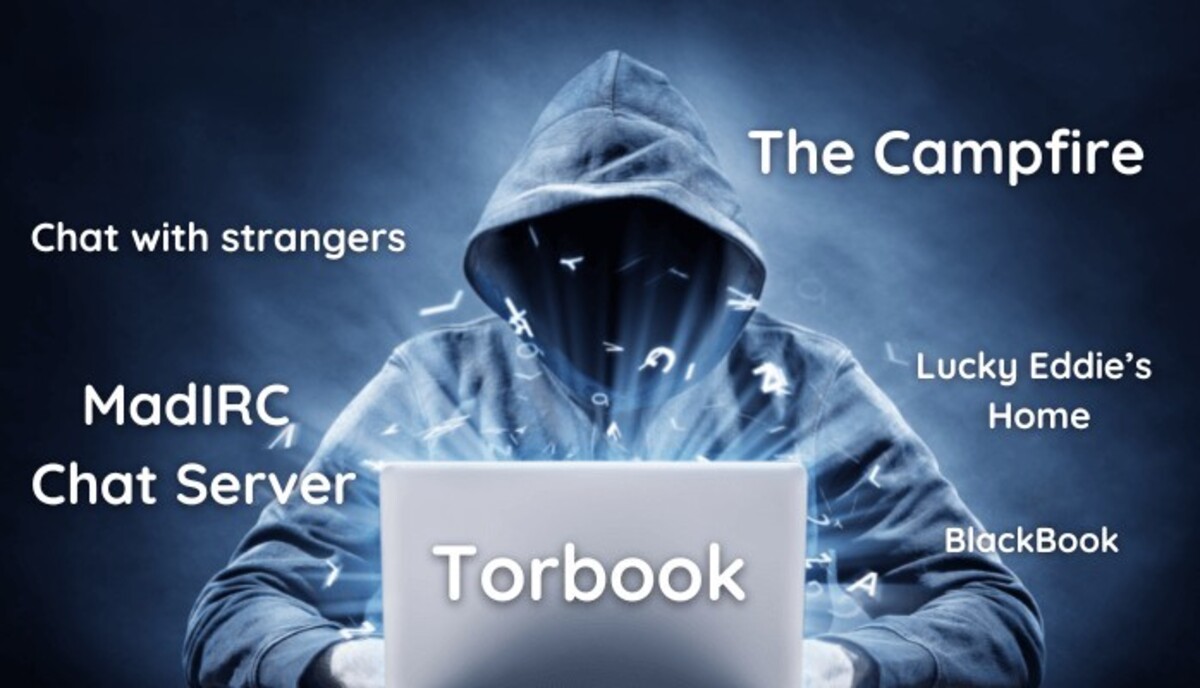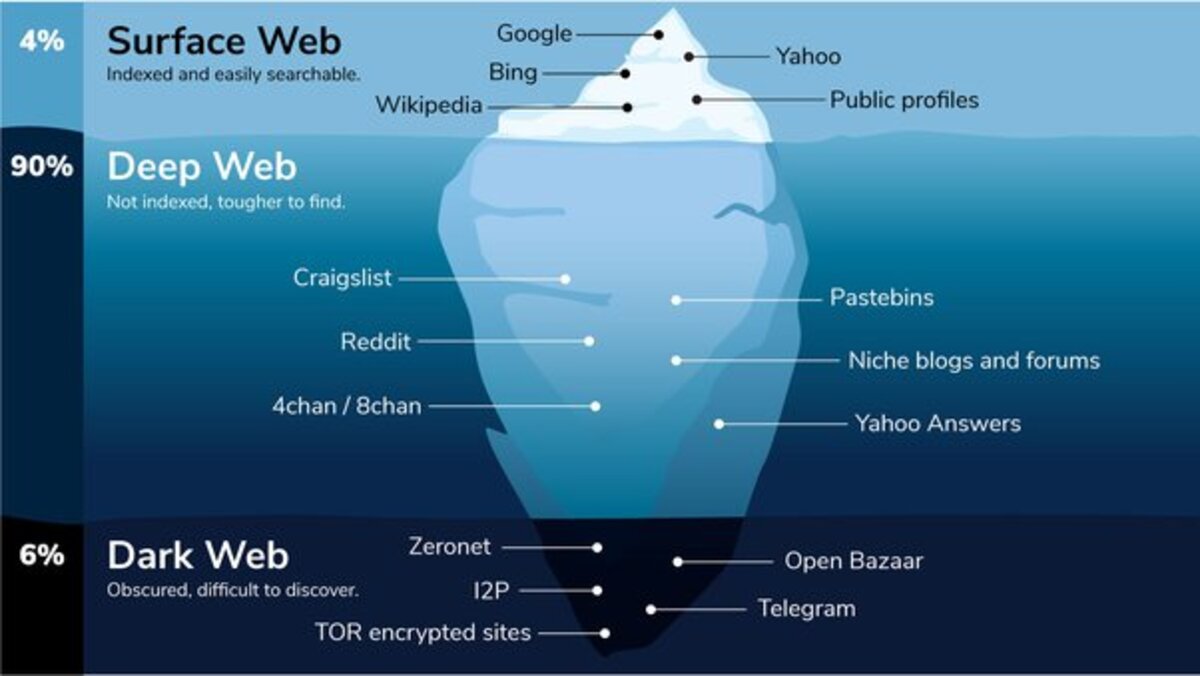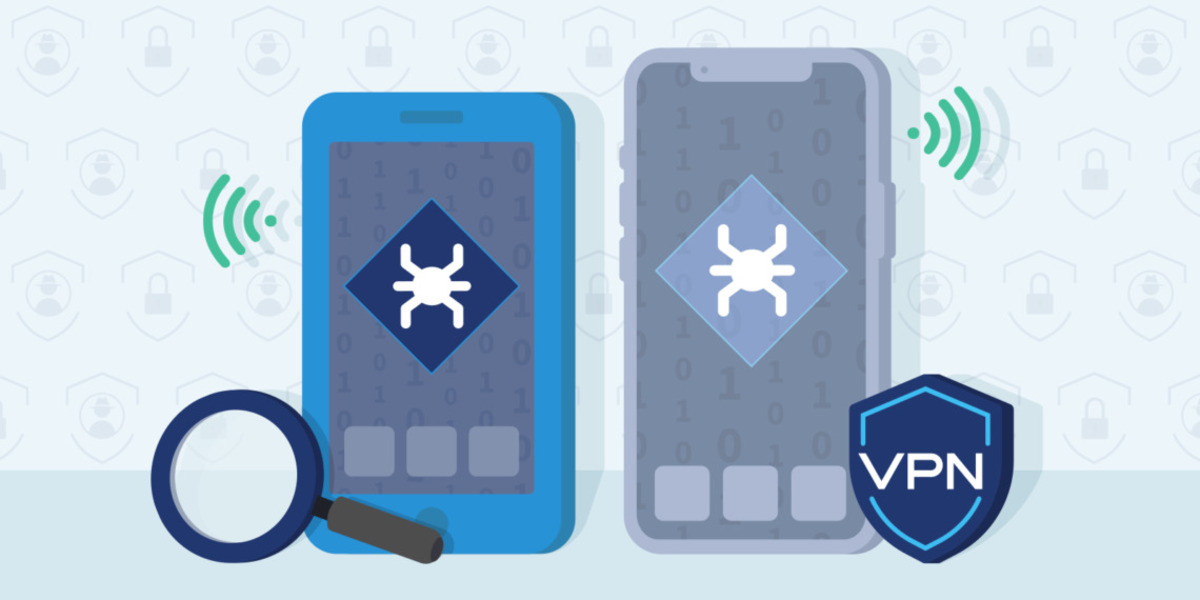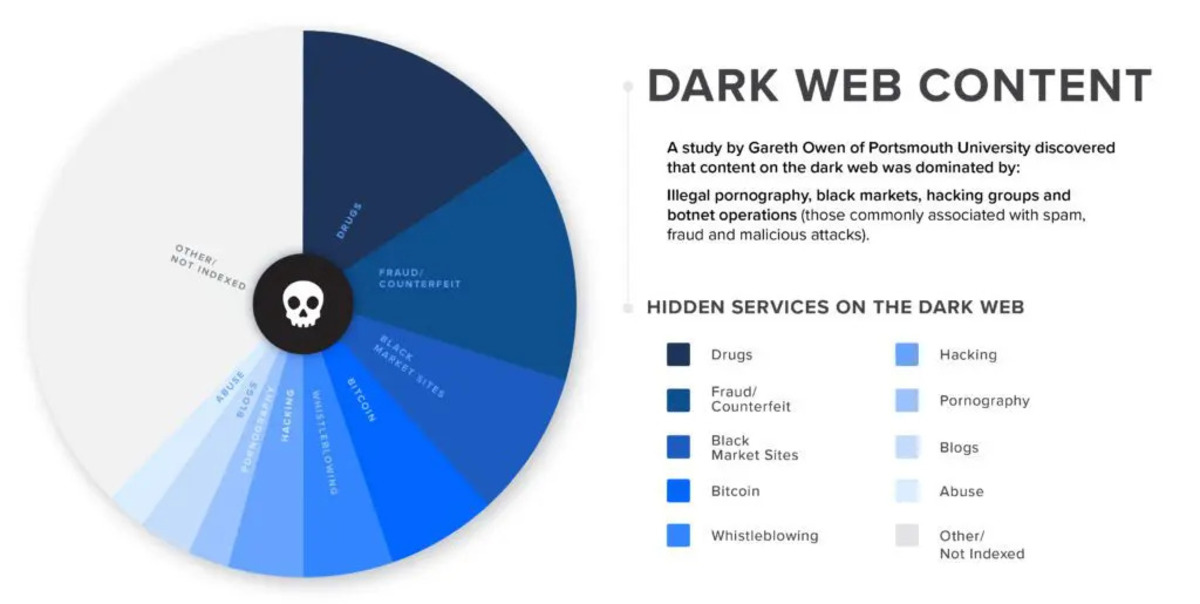Introduction
The Dark Web is an encrypted network that operates parallel to the surface web. It provides users with anonymity and enables them to engage in illicit activities without being easily tracked or identified. While the Dark Web is often associated with illegal activities, it is important to note that not everything sold there is unethical or illegal.
The Dark Web is a complex and intricate ecosystem, consisting of various marketplaces, forums, and websites. It requires specific software, such as Tor, to access, ensuring the privacy and anonymity of its users. Due to its nature, the Dark Web has become a hub for black market transactions and underground activities. In this article, we will explore some of the common items that are sold on the Dark Web.
Disclaimer: It is crucial to understand that engaging in any illegal activities is against the law and highly discouraged. The purpose of this article is to provide information and raise awareness about the activities that occur on the Dark Web.
Drugs and Pharmaceuticals
One of the most notorious categories of items sold on the Dark Web is drugs and pharmaceuticals. Numerous marketplaces offer a wide range of illegal substances, including marijuana, cocaine, heroin, and synthetic drugs. These online drug markets function similarly to e-commerce platforms, allowing users to browse listings, read reviews, and make purchases.
Dark web drug markets rely on cryptocurrencies like Bitcoin to facilitate transactions, ensuring a high level of anonymity for both buyers and sellers. The packaging and delivery methods are discreet, often utilizing encrypted messaging and advanced stealth techniques to avoid detection by law enforcement.
The demand for pharmaceuticals is also prevalent on the Dark Web, with prescription medications being sold without requiring a valid prescription. Buyers can find a variety of medications, ranging from painkillers to sedatives to erectile dysfunction pills. These markets exploit vulnerabilities in the healthcare system, as well as individuals seeking inexpensive or accessible medications without a doctor’s prescription.
It is essential to recognize the immense dangers associated with purchasing drugs on the Dark Web. The quality and purity of these substances can be uncertain, leading to serious health risks, overdose, or even death. Engaging in such illegal activities not only puts the individual at risk but also supports the criminal underworld and perpetuates the drug trade.
Stolen Data and Personal Information
Another alarming aspect of the Dark Web is the trade of stolen data and personal information. Cybercriminals exploit vulnerabilities in computer systems and networks to obtain sensitive data, including credit card details, social security numbers, login credentials, and more. This stolen information is then sold on the Dark Web to individuals or groups looking to commit identity theft, financial fraud, or other illicit activities.
Marketplaces on the Dark Web offer a wide range of stolen data, categorized by type, industry, or geographic location. These listings often come with detailed information about the individuals or organizations associated with the data, making it easier for criminals to exploit the stolen identities.
Personal information sold on the Dark Web can be used in various malicious ways, such as gaining unauthorized access to online accounts, creating fake identities, or even committing financial crimes. Buyers may use this data for phishing attacks, blackmail, or targeted scams, posing a significant threat to individuals and organizations alike.
Protecting personal information and implementing strong security measures are crucial to mitigate these risks. Regularly monitoring accounts, using strong and unique passwords, and being cautious of suspicious emails or messages are some of the steps individuals can take to safeguard themselves against identity theft and data breaches.
Law enforcement agencies and cybersecurity organizations are actively working to track down and prosecute individuals involved in the illicit trade of stolen data. However, the ever-evolving nature of the Dark Web presents challenges in effectively combating this underground economy.
Weapons
One of the most alarming aspects of the Dark Web is the availability of weapons for sale. Illegal firearms, ammunition, and other deadly weapons can easily be found on various marketplaces operating within the hidden corners of the internet.
The Dark Web allows individuals to purchase firearms without undergoing the necessary background checks and paperwork required by legal means. These marketplaces offer a wide variety of weapons, ranging from handguns to assault rifles, as well as accessories and modifications.
Buyers on the Dark Web can communicate with sellers discreetly, making use of encrypted messaging platforms to negotiate and finalize transactions. Delivery methods vary, with sellers utilizing innovative methods to ensure their products reach the buyers without detection.
The availability of weapons on the Dark Web poses a significant risk to public safety. It provides criminals and individuals with malicious intentions access to deadly weaponry, bypassing the strict regulations and accountability associated with legal firearms transactions.
Law enforcement agencies face significant challenges in combatting the illegal arms trade on the Dark Web. The anonymous nature of the transactions makes it difficult to track down sellers and buyers, resulting in the perpetuation of this dangerous trade.
It is important to emphasize that the trade of weapons on the Dark Web is highly illegal and should not be engaged in. Supporting or participating in such activities not only poses a threat to society but also carries severe legal consequences.
Efforts are being made by law enforcement agencies, cybersecurity organizations, and government authorities to disrupt and dismantle these illicit weapon marketplaces on the Dark Web. However, it remains a constant battle to stay one step ahead of individuals and groups involved in this illegal trade.
Hacking Tools and Services
The Dark Web provides a haven for individuals with malicious intent to access and purchase hacking tools and services. These underground marketplaces offer a wide range of hacking tools, exploits, malware, and even hacking services for hire.
These tools and services cater to a diverse group of individuals, including seasoned cybercriminals, aspiring hackers, and individuals with a curiosity for exploring the darker side of the internet. They can be used for various purposes, such as gaining unauthorized access to systems, stealing sensitive information, or launching cyber-attacks.
Hacking tools and services available on the Dark Web can range from simple software programs to sophisticated exploits targeting specific vulnerabilities. These tools enable individuals to exploit security weaknesses in computer systems, networks, and websites.
In addition to selling hacking tools, some individuals and groups offer hacking services for hire. These services can include activities like DDoS attacks, website defacement, email hacking, and more. Customers can pay hackers to carry out specific attacks on their behalf, often targeting businesses, organizations, or even individuals.
The availability of hacking tools and services on the Dark Web poses a significant threat to cybersecurity. It enables individuals with limited knowledge to engage in illegal activities and wreak havoc on vulnerable systems and networks.
It is important to note that engaging in hacking activities, whether on the Dark Web or elsewhere, is illegal and unethical. It is crucial to prioritize ethical practices, such as ethical hacking and responsible disclosure, to protect the security and privacy of individuals and organizations.
Law enforcement agencies, cybersecurity firms, and technology companies are constantly working to combat the trade of hacking tools and services on the Dark Web. However, the ever-evolving nature of cybercrime presents a continual challenge in staying ahead of individuals and groups involved in these illicit activities.
Counterfeit Goods
Counterfeit goods are a prevalent and lucrative market on the Dark Web. These illegal replicas of authentic branded products, such as luxury items, electronics, apparel, and accessories, are produced and sold without the authorization of the original manufacturers.
The Dark Web provides a platform for sellers and buyers to engage in the trade of counterfeit goods with a level of anonymity and reduced risk of detection. These marketplaces offer a wide range of counterfeit items that are designed to resemble the genuine products as closely as possible.
Counterfeit goods are often produced using substandard materials and methods, resulting in poor quality and potential safety hazards. Buyers who purchase these items may be unaware that they are purchasing counterfeit goods, leading to disappointment and financial loss.
The sale of counterfeit goods not only undermines the reputation and revenue of legitimate brands but also contributes to organized crime and illicit networks. The profits generated from counterfeit trade can fund other illegal activities, including drug trafficking, human trafficking, and terrorism.
Customers looking to purchase authentic products should be cautious when shopping online and ensure that they are buying from authorized retailers or reputable e-commerce platforms. Buying directly from the official brand websites or authorized retail outlets is the best way to ensure the authenticity and quality of the products.
Law enforcement agencies and intellectual property rights holders are actively working to combat the sale of counterfeit goods on the Dark Web. These efforts include collaboration with international partners, monitoring of online marketplaces, and taking legal action against those involved in the production and distribution of counterfeit items.
It is essential for consumers to be informed and make educated choices when making purchases, supporting legitimate businesses and discouraging the trade of counterfeit goods.
Fake Identities and Passports
The Dark Web provides a platform for the sale of fake identities and passports, offering individuals the opportunity to assume new identities and bypass legal systems. These illegal services cater to those seeking forged passports, driver’s licenses, social security cards, and other forms of identification.
Marketplaces on the Dark Web offer a wide range of fake identity documents, often with varying levels of authenticity. These forged documents can be used for fraudulent activities, including identity theft, illegal immigration, and financial fraud.
The sellers of fake identities and passports exploit the vulnerabilities in identification systems, creating counterfeit documents that can deceive authorities and institutions. These documents are often produced using high-end equipment and techniques, making them difficult to detect without careful scrutiny.
The trade of fake identities and passports poses significant risks, not only to individuals whose identities are stolen but also to national security and public safety. Criminals and terrorists can use these forged documents to facilitate illegal activities and bypass security measures.
It is crucial to understand that engaging in the purchase or use of fake identities and passports is a serious crime with severe legal consequences. Such actions undermine the integrity of identification systems and contribute to the erosion of trust in official documents.
Governments, law enforcement agencies, and international organizations are actively collaborating to combat the trade of fake identities and passports on the Dark Web. This includes efforts to enhance identification systems, improve border control measures, and prosecute those involved in the production and distribution of counterfeit documents.
To protect themselves from identity theft and fraud, individuals should practice caution when providing personal information and ensure the security of their identification documents. Reporting any suspicions or concerns regarding fake identities or passports to the proper authorities is essential in supporting these efforts to maintain the integrity of identification systems.
Organ Trafficking
Organ trafficking is a horrifying and illegal practice that involves the trade of organs for transplantation. While most organ transplants occur through legal and ethical means, the Dark Web serves as a platform for the illicit trade of human organs, exploiting vulnerable individuals and perpetuating a black market.
The demand for organs, such as kidneys, livers, and hearts, far outweighs the available supply through legal transplantation channels. This demand creates an opportunity for criminal networks to capitalize on the desperation of those in need of life-saving organ transplants.
The Dark Web provides a space where those in need of organs and potential buyers can connect with organ traffickers, willing to exploit the situation for personal gain. Organ traffickers often prey on vulnerable populations, including impoverished individuals who are willing to sell their organs as a means of survival.
The process of organ trafficking on the Dark Web involves arranging for the illegal removal of organs from unwilling donors and facilitating their transportation to recipients. This cruel and inhumane practice not only violates the rights and dignity of the donors but also puts the lives of those receiving the organs at risk.
Efforts to combat organ trafficking involve international collaborations, strict regulations governing organ transplantation, and awareness campaigns to educate the public about the risks and ethical concerns associated with obtaining organs through illicit means.
It is important for individuals to understand that engaging in organ trafficking, whether as a buyer or a seller, is a criminal offense and a violation of human rights. Supporting and participating in this illegal trade fuels the exploitation of vulnerable individuals and perpetuates a cycle of violence and injustice.
Government agencies, law enforcement bodies, and healthcare organizations are actively working to identify and dismantle the networks involved in organ trafficking on the Dark Web. This includes investigations, arrests, and prosecutions of those involved in these illegal activities.
Through international cooperation and increased awareness, steps can be taken to combat organ trafficking, protect the rights of individuals, and ensure an ethical and transparent organ transplantation system.
Human Trafficking
Human trafficking is a heinous crime that exploits and enslaves individuals, often involving forced labor, sexual exploitation, and other forms of modern-day slavery. While this illegal practice predominantly occurs offline, the Dark Web serves as a facilitator for the hidden aspects of human trafficking.
The Dark Web provides a platform for criminals involved in human trafficking to connect with potential victims, buyers, and other individuals who enable and profit from this illicit trade. These criminals create online networks, advertise victims, negotiate prices, and arrange for the transport and exploitation of individuals.
Victims of human trafficking are often lured or coerced into situations where they are deceived, isolated, and controlled. The anonymity and encryption offered by the Dark Web make it easier for traffickers to carry out their operations without being easily detected or traced.
Various forms of human trafficking, including sex trafficking and labor trafficking, are facilitated through the Dark Web. Traffickers use online platforms to exploit vulnerable individuals, promising job opportunities, romantic relationships, or a better life, only to subject them to abuse and exploitation.
Efforts to combat human trafficking involve collaboration between law enforcement agencies, non-governmental organizations, and governments at national and international levels. These efforts focus on raising awareness, supporting victims, dismantling criminal networks, and increasing penalties for those involved in human trafficking.
It is important for individuals to be vigilant and report any suspicions or concerns about human trafficking to the proper authorities. By doing so, we can help rescue victims, disrupt the operations of traffickers, and provide support and rehabilitation services to survivors.
By shedding light on the connection between the Dark Web and human trafficking, efforts can be made to uncover and dismantle the hidden networks that perpetuate this horrific crime. Combating human trafficking requires a multi-faceted approach, involving law enforcement, legislation, education, and support for victims.
Together, we can work towards ending human trafficking and ensuring the safety, dignity, and freedom of every individual.
Illegal Pornography
The Dark Web has unfortunately become a hub for the dissemination of illegal pornography, including child pornography and explicit content involving non-consenting individuals. While the majority of online pornography is legal and regulated, the Dark Web provides an avenue for the distribution and consumption of illicit and harmful material.
Illegal pornography on the Dark Web involves the production, distribution, and consumption of explicit content that involves minors or non-consenting individuals. This criminal activity exploits and harms vulnerable individuals, perpetuating their exploitation and violating their rights.
Perpetrators use the anonymity and encryption offered by the Dark Web to share and access illegal pornography without being easily detected by law enforcement agencies. This poses significant challenges in identifying and prosecuting those involved in the production and distribution of such material.
The consumption and possession of illegal pornography, including child pornography, is a serious criminal offense with severe legal consequences. It is crucial to understand that engaging in the viewing or sharing of any form of illegal pornography contributes to the demand for such material and perpetuates the exploitation of vulnerable individuals.
Efforts to combat the distribution and consumption of illegal pornography involve collaboration between international organizations, law enforcement agencies, and technology companies. These efforts include developing advanced technologies to identify and remove illegal content, raising public awareness, and actively pursuing and prosecuting individuals involved in the production and distribution of illegal pornography.
Safeguarding against illegal pornography requires the establishment and implementation of strong legal frameworks, increased regulation and oversight of online platforms, and education about responsible online behavior. It is crucial for individuals to report any suspicions, concerns, or encounters with illegal pornography to the appropriate authorities.
By combating the demand for illegal pornography, supporting victims, and empowering organizations and agencies working to eradicate this heinous crime, we can make significant strides towards protecting vulnerable individuals and creating a safer online environment.
Hitmen and Assassins
The Dark Web has gained notoriety for being a marketplace where individuals can allegedly hire hitmen or assassins to carry out targeted killings. While the extent to which these services truly exist on the Dark Web is debatable, the concept is deeply disturbing and represents a dangerous criminal activity.
Alleged hitmen and assassin services on the Dark Web are primarily fueled by claims and anonymous postings, making it challenging to determine their legitimacy. However, the mere presence of such claims underscores the dark underbelly of the internet and the potential for individuals with criminal intentions to seek out such services.
The notion of hiring hitmen or assassins raises serious ethical, moral, and legal concerns. Targeted killings are illegal and inhumane, violating the most basic principles of human rights and the rule of law. It is crucial to emphasize that hiring, engaging in, or promoting violence is completely unacceptable and punishable by law.
Law enforcement agencies actively monitor the Dark Web and collaborate with international partners to investigate and prevent potential threats. They employ various strategies to identify and apprehend individuals who attempt to engage in criminal activities, including seeking out hitmen or assassins.
Social media platforms and online communities play a critical role in reporting any suspicious activities related to hitmen or assassination services. Individuals should promptly notify law enforcement agencies, providing any available information to aid in their investigations.
It is important to recognize that the majority of claims regarding hitmen or assassination services on the Dark Web may be exaggerated or simply fictitious. Nonetheless, the sheer existence of such claims underscores the need for continued vigilance and proactive measures in combatting crime and protecting the safety of individuals.
By actively engaging in discussions about the dangers of seeking out violence and promoting peaceful resolutions, we can contribute to a safer society and work towards preventing potential harm.
Conclusion
The Dark Web is a hidden and encrypted part of the internet that serves as a marketplace for illegal activities, attracting individuals with malicious intentions. While not everything sold on the Dark Web is illegal or unethical, it is important to understand and address the disturbing aspects that exist within this hidden ecosystem.
We have explored several categories of items that are commonly found on the Dark Web, including drugs and pharmaceuticals, stolen data and personal information, weapons, hacking tools and services, counterfeit goods, fake identities and passports, organ trafficking, human trafficking, illegal pornography, and alleged hitmen or assassins.
Engaging in any illegal activities on the Dark Web is highly discouraged and carries severe consequences. It is crucial to prioritize ethical conduct, respect for laws, and the safety and well-being of individuals.
Efforts to combat illegal activities on the Dark Web involve collaboration between law enforcement agencies, cybersecurity organizations, governments, and individuals. Raising awareness, reporting suspicious activities, supporting victims, implementing strict regulations, and educating the public are key steps in disrupting the underground economy and protecting individuals from harm.
By working together to dismantle criminal networks, safeguard personal information, support legitimate businesses, and ensure the safety and dignity of individuals, we can mitigate the negative consequences associated with the Dark Web and create a safer digital landscape for everyone.







